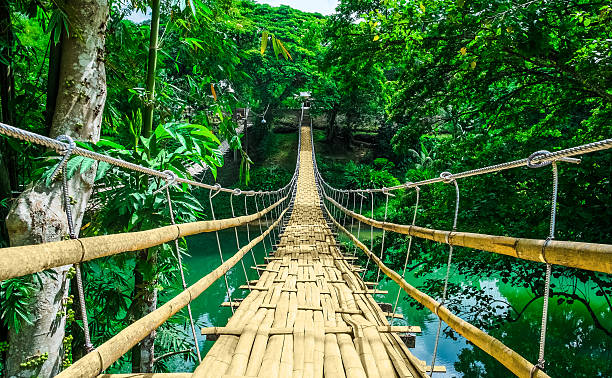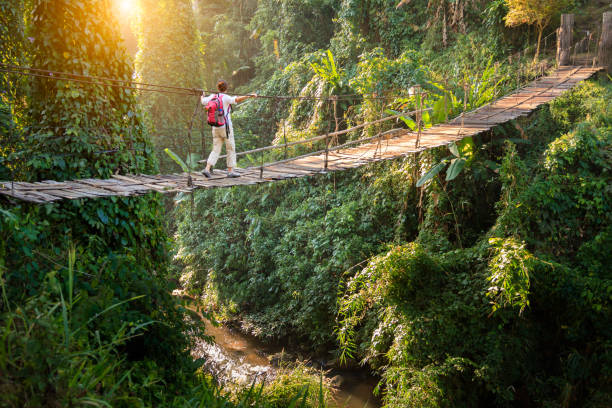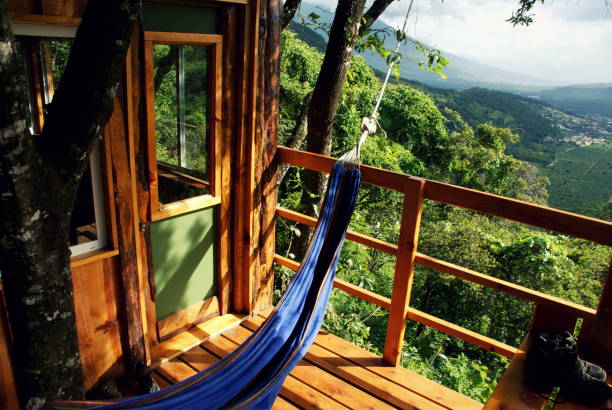Africa should embrace ecotourism more - but not to the detriment of the locals

Africa is fast growing as an attractive holiday destination for tourist, with a vast number of cultures and so much diversity. for westerners whom are used to "perfect first world conditions" they might have certain reservations about the continent due to some political instability, lack of adequate health care and crime rate level in some countries. But then again, this can be over exaggerated. The second largest continent in the world is Africa and most of the her countries are more peaceful and more welcoming than reported.
As the daily concerns over climate change and global warming keeps gathering pace, it helps to find an industry that is committed to eco-friendly solutions. Ecotourism is seen as "the responsible travel to natural areas which conserves the environment and improve the welfare of the locals" while eco travel are becoming major within the African tourism sector, there are genuine concerns over whether it's having enough positive impact on its local host communities.
In today's world, hopefully with covid-19 restrictions easing as more people are being vaccinated and airports being reopened, international travel can get back to it's pre pandemic levels. Responsible tourism, or ecotourism, is something most new and old travellers should begin to practise going forward. The need to be mindful of how travelling is done cannot be over emphasized if indeed we care about climate change. Being mindful about travelling has an impact not only on the host community but the environment.

Eco lodges in Africa are becoming pretty common as the growing number of coastal luxury properties are now focusing on sustainability. Being a well vast and highly diverse continent full of amazing cultures and customs, dramatic scenery and extraordinary wildlife, travelling to any part of Africa is essentially highly affordable and there are quite a number of destinations to visit for eco conscious travellers. Here are some of the most memorable eco lodges in Africa.
Cheewtah Paw Eco Lodge in South Africa
A relatively tiny Lodge located near Hoedspruit just outside of Kruger National Park. Built with eco friendly materials, involve in practising waste recycling, while their food produce are supplied local farmers. An highly affordable Lodge.
NamibRand Nature Reserve in Namibia
Found in the southern part of Namibia, this is a private nature reserve situated in the mummy desert. Opened in the early 1980's to help protect and conserve the unique ecology and wildlife of the namib desert. Some of the world's rarest animal can be found here in their natural habitat roaming the tangerine and orange plains of the desert.
Azura Benguerra Island in Mozambique
Accessible only by boat or helicopter and located of the coast of Vilankulos in southern Mozambique. The vibe here is modern and chic than raw and rustic. Just like so many other islands in Mozambique it's great for diving.
Ulala Lodge in Mozambique
A beautiful resort in the Cabo Delgado province. Here, they've incorporated solar and wind power to provide energy and hot water, while employees are recruited from local communities.
Linyanti Expeditions in Botswana
Located in the middle of one of the best wildlife corridors in Africa. Found between the Greater Chobe National Park and the Okavango Delta. It all plays into an ecosystem that is interlinked as the Linyanti Channel.
Ila Lodge in Zambia
This is a Lodge whose premise for operation is based on environmentally conscious travel. They also adopt the reduce, reuse and recycle strategy and support the local communities by teaching them sustainable farming.
Bwindi Lodge in Uganda
Ever wanted to go on gorilla trekking in Uganda. Situated some five minute walk away from the entrance to the impenetrable National Forest and serves as a buffer zone between the community and the park. Operated on solar power while rainwater is collected for reuse.

While ecotourism can bring much needed wealth to most poor nation's in Africa, usually marginalized local communities suffer. It is the responsibility of travel agencies and tour operators to encourage ethical travel of visiting tourist by ensuring they support and be responsible to their host communities, there are certain instances where tourists especially westerners "blatantly disregard local cultures and customs and in some cases act rudely towards their host communities" as a matter of necessity this should be highly frowned upon, and even for the eco traveler it is your responsibility to also research the local customs before making the journey, try patronizing local businesses, be friendly and responsible and take out time to volunteer your services. Lodges in Africa should focus on preservation and conservation as it is their primary tourist appeal.
Fair to say, it is imperative for African governments and authorities to ensure that while ecotourism and eco travel is very necessary for it's economic growth and conservation, it should be focused on supporting local communities and businesses while encouraging and reducing environmental loading.
Lack of proper government regulations and well designed developmental plan for ecotourism means a lot of industries actually harm the environment and local communities by introducing too many people to very sensitive areas (unregulated access of visitors), degradation and destruction of natural resources, water source contamination, negative outside influence on social and cultural norms of locals, while lands are bought by large companies whom do not redistribute wealth to these poor local communities.
Ecotourism can only be successful in Africa if programs are carefully designed to be sensitive to the natural environment, provide a direct economic benefit to the locals, improve state of social services, increase public awareness of environmental issues and provide additional funding for conservation programs.
0 Comments Add a Comment?